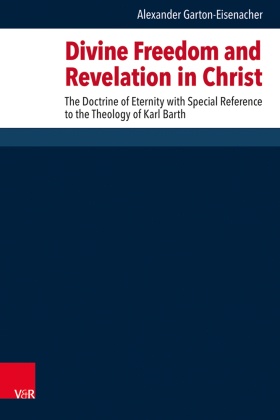
Divine Freedom and Revelation in Christ - The Doctrine of Eternity with Special Reference to the Theology of Karl Barth. Dissertationsschrift
| Verlag | Vandenhoeck & Ruprecht |
| Auflage | 2022 |
| Seiten | 208 |
| Format | 15,8 x 1,9 x 24,0 cm |
| Gewicht | 463 g |
| Artikeltyp | Englisches Buch |
| Reihe | Forschungen zur systematischen und ökumenischen Theologie Band 174 |
| ISBN-10 | 3525567359 |
| EAN | 9783525567357 |
| Bestell-Nr | 52556735A |
Christianity claims the incarnation provides reliable knowledge about God but also asserts the incarnation need not have happened. This tension at the heart of the Christian faith is overcome by combining the theology of Karl Barth with a classical doctrine of eternity.
God's eternity is crucial in demonstrating the trustworthiness of the Christian faith.
Christianity claims that the incarnation provides reliable knowledge about God but also that the incarnation was undertaken freely and thus need not have happened. Alexander Garton-Eisenacher resolves this tension between epistemological reliability and divine freedom, building particularly from the work of Karl Barth. Garton-Eisenacher offers a fresh reading of the Church Dogmatics that demonstrates how Barth's theology provides a promising starting point but notes that his argument is ultimately undermined by the doctrine of eternity within which it is framed. The author overcomes this issue by showing how the promising motifs employed by Barth can be authentically derived from the classical doctrine of eternity instead. In so doing, this work shows that reading classical eternity against a Barthian background also serves to draw out a more temporal interpretation of the doctrine than its contemporary characterization, reclaiming it as a viable Christian understanding of God's r elationship to time.
